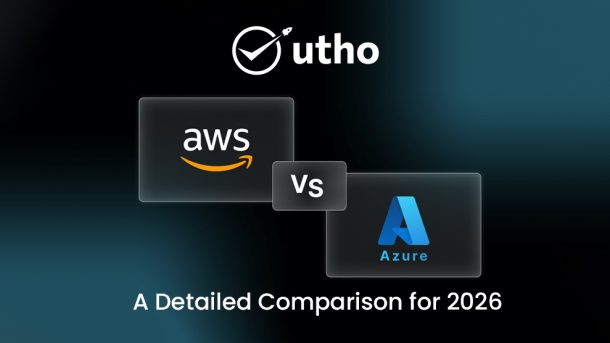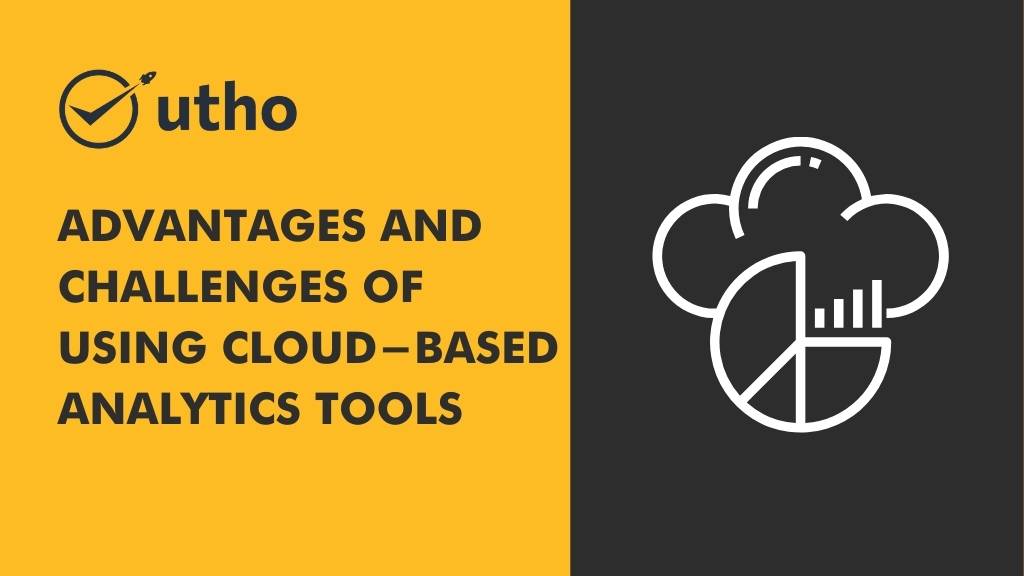Introduction
In 2026, cloud computing is evolving fast. Businesses want digital transformation, scalability, and efficiency. This revolution is led by two giants: Amazon Web Services (AWS) and Microsoft Azure. These cloud providers are now the dominant players. They power the infrastructure behind startups, enterprises, and public sector organisations worldwide.
Choosing between AWS vs Azure is not just a technical decision. It's a strategic move that affects cost, performance, and business continuity. Both platforms offer many features, services, and tools for various industries. But their subtle differences can affect your cloud initiatives' success.
This blog is a guide for businesses, CTOs, DevOps engineers, and IT managers. It will help them with the complexities of AWS vs Azure in their cloud adoption efforts. Examine each platform's strengths, services, data centres, pricing, and USPs. You'll gain insights. They will help you make informed decisions that align with your long-term goals.
Why compare AWS vs Azure?
The debate between AWS vs Azure remains significant for several reasons:
- Market Dominance: AWS and Azure hold over 60% of the global cloud market. They are the most trusted platforms for critical apps, data storage, and infrastructure. Their competition drives innovation, offering businesses cutting-edge tools and solutions.
- Diverse Offerings: Both platforms provide comprehensive ecosystems that include:
- Compute resources (virtual machines and containers)
- Storage (Object, File, and Block Storage)
- Databases (relational and NoSQL)
- AI/ML services
- Networking and security tools
- With so many options, businesses need clarity. They must choose the platform that fits their workload and growth plans.
- In 2026, firms must optimize cloud costs. They must also maintain scalability and performance. AWS and Azure have different pricing models and discount plans. They also have different tools. This makes it hard for decision-makers to find which platform gives the best ROI.
By comparing these two cloud providers, businesses can find the best solution. It should meet their needs without overspending or complicating their cloud environments.
AWS vs Azure: Key Aspects Covered
To help you make the right decision, this blog covers the following critical aspects:
- Overview of AWS and Azure – A snapshot of their strengths, histories, and core features.
- Service Comparison – Key offerings, including compute, storage, databases, AI/ML, and networking.
- Data Centre Coverage – Global reach and infrastructure availability.
- Pricing and Cost Efficiency – A look at strategies to optimise cloud costs.
- Performance and Reliability – Uptime, latency, and overall system performance.
- Security and Compliance - How AWS and Azure protect your data and meet regulations.
- Best Use Cases for Each – When to choose AWS or Azure based on business needs.
- Utho's Affordable Alternative - A cheap, high-performance option for firms. It saves money and boosts efficiency.
AWS vs Azure: A Comprehensive Service Comparison
When comparing AWS and Azure, it's vital to know their services in key areas. Both platforms offer robust tools and technologies. But, their specific services differ. This can affect your choice based on your workloads, goals, and infrastructure. Here’s an in-depth service comparison of AWS and Azure:
| Category | AWS | Azure |
| Compute | Amazon EC2: Flexible virtual servers for scalable computing capacity. | Azure Virtual Machines: Scalable virtual servers for running workloads. |
| AWS Lambda: Serverless compute service for event-driven applications. | Azure Functions: Serverless compute to build and run small, event-driven apps. | |
| Elastic Beanstalk: Easy application deployment and management. | ||
| Storage | Amazon S3: Scalable object storage for data archiving and backup. | Azure Blob Storage: Highly scalable object storage for unstructured data. |
| Amazon EFS: Managed file storage for Linux-based workloads. | Azure Files: Managed file storage with SMB protocol support. | |
| Amazon Glacier: Low-cost, long-term cold storage. | ||
| Database | Amazon RDS: Fully managed relational database service for MySQL, PostgreSQL, and more. | Azure SQL Database: Fully managed relational database with AI optimization. |
| DynamoDB: Managed NoSQL database for high-performance applications. | Azure Cosmos DB: NoSQL database with global distribution and low latency. | |
| Redshift: Cloud-based data warehousing for big data analytics. | ||
| AI & ML | Amazon SageMaker: Build, train, and deploy machine learning models. | Azure AI: A comprehensive AI service with tools for bots, data insights, and speech recognition. |
| Amazon Lex: Build conversational interfaces using voice and text. | Cognitive Services: Pre-built APIs for vision, speech, language, and decision-making tasks. | |
| Amazon Rekognition: Image and video analysis powered by AI. | ||
| Networking | Amazon VPC: Isolated cloud resources for networking. | Azure Virtual Network (VNet): Network isolation and control for resources. |
| Route 53: DNS and domain management. | Traffic Manager: Load balancing and traffic routing for global applications. | |
| CloudFront: Content delivery network (CDN) for low-latency content delivery. | ||
| Security | AWS IAM: Identity and Access Management for user permissions. | Azure Active Directory (AAD): Identity management and access control. |
| GuardDuty: Threat detection and continuous monitoring. | Azure Sentinel: Cloud-native SIEM for threat detection and response. | |
| WAF (Web Application Firewall): Protects web apps from security vulnerabilities. |
Both AWS and Azure excel in compute, storage, and AI/ML. AWS often leads in advanced AI tools and third-party integration. Azure is best for businesses reliant on Microsoft and hybrid clouds.
AWS vs Azure: Data Centre Coverage
Global data center availability is critical. It ensures low latency, high availability, and disaster recovery.
- AWS: AWS has 30+ regions and 99+ Availability Zones. This ensures global scalability. The provider plans to expand aggressively to meet rising demand.
- Azure: Azure has 60+ cloud regions, the most of any provider. It is the largest global cloud infrastructure provider. Its wide coverage is ideal for businesses needing local access and to comply with data laws.
For firms valuing global reach and regional flexibility, Azure's data centres are better. However, AWS continues to maintain its reliability and performance across its established regions.
AWS vs Azure: Pricing and Cost Efficiency
Both AWS and Azure use a pay-as-you-go pricing model, ensuring you only pay for what you use. However, the approach to cost savings and pricing structures can vary:
- AWS: AWS is often more cost-effective for businesses scaling globally. It offers savings through:
- Reserved Instances (RIs): Pre-purchase instances for significant discounts.
- Spot Instances: Ideal for fault-tolerant workloads, providing savings of up to 90%.
- Azure: It is more cost-efficient for businesses using Microsoft ecosystems, because:
- Hybrid Benefits: Reuse existing Windows Server or SQL Server licenses for discounted rates.
- Pricing Transparency: Azure’s pricing tools help estimate and optimize costs effectively.
AWS vs Azure Cost Example: For a virtual machine with 8 vCPUs and 32 GB RAM:
- AWS EC2: $0.20/hour
- Azure VM: $0.22/hour
Both platforms have tools to analyze and optimize spending. They are AWS Cost Explorer and Azure Pricing Calculator. AWS suits businesses wanting flexible costs. Azure is best for hybrid cloud users.
Security and Compliance
Security remains a cornerstone for cloud adoption. Both AWS and Azure offer enterprise-grade security features:
- AWS:
- Identity and Access Management (IAM) for role-based access control.
- AWS GuardDuty: Intelligent threat detection for continuous monitoring.
- Compliant with 90+ security standards like GDPR, HIPAA, and SOC 2.
- Azure:
- Azure Active Directory (AAD) for identity and access management.
- Azure Sentinel: A cloud-native SIEM for proactive threat detection.
- Compliance with 90+ certifications, including GDPR and ISO standards.
Both platforms use strong encryption, firewalls, and auditing tools. They protect sensitive workloads and meet compliance requirements.
Best Use Cases
Understanding the best use cases can help align AWS vs Azure with your business goals:
| AWS is Best For | Azure is Best For |
| Global Scalability: Enterprises with global workloads requiring reliable infrastructure. | Hybrid Cloud Environments: Businesses needing seamless integration with on-premise infrastructure. |
| Advanced AI/ML Projects: Companies leveraging machine learning tools like SageMaker. | Microsoft Ecosystem: Organizations already using Windows Server, Office 365, or SQL Server. |
| Flexible Compute and Storage: Businesses with dynamic resource needs. | Government and Compliance-Heavy Sectors: Sectors with strict regional compliance requirements. |
While AWS excels at scalability, AI capabilities, and flexibility, Azure’s strength lies in its hybrid cloud leadership and seamless compatibility with Microsoft services.
Utho: An Affordable Cloud Alternative
AWS and Azure dominate the cloud market. But many businesses face challenges. These include high costs, complex pricing, and the difficulty of managing cloud infrastructure. These challenges can hurt efficiency and budgets, especially for startups and growing firms.
This is where Utho shines. It's a game-changing, made-in-India cloud platform. It offers high performance, cost savings, and simplicity.
Why choose Utho?
- 60% Cost Reduction: Utho helps businesses cut cloud costs by up to 60% vs. traditional hyperscalers. It optimises budgets without sacrificing performance, reliability, or scalability.
- Free Migration: Migrating your workloads can be complex and costly. But Utho offers direct, hassle-free migration within 30 days—free of charge. Our expert team ensures zero disruptions and a smooth transition to the platform.
- Utho designers created it for a seamless user experience. Its intuitive, optimised infrastructure caters to startups and enterprises. We optimize everything. This includes compute, storage, and managed services. They allow for fast deployment and management.
- Utho uses cutting-edge tech and secure data centres. It guarantees high availability, strong performance, and enterprise-grade reliability.
Start your cloud journey with Utho.
Use a cloud platform that’s affordable, simple, and secure. It will provide great value for your business. Utho provides the tools and support you need to succeed. Whether you’re scaling operations, cutting costs, or modernising infrastructure.
Try Utho's cloud solutions. Save money and boost performance! 🚀
The AWS vs Azure debate boils down to your specific needs. AWS is best for global scale and advanced solutions. Azure is ideal for hybrid clouds and Microsoft compatibility.
Businesses seeking cheap, easy, and reliable cloud solutions can save a lot with alternatives like Utho.
Discover more about Utho and revolutionise your cloud infrastructure today!
Final Thoughts: AWS vs Azure
The AWS vs Azure debate comes down to your business needs.
- AWS is the top choice for firms needing global scalability, AI/ML, and a strong infrastructure.
- Azure is the choice for businesses wanting a strong hybrid cloud. It offers seamless integration with Microsoft tools and high compliance.
However, not every business can afford the costs and complexities of these hyperscalers. Utho is a great, low-cost, and easy-to-use cloud solution. It's a good option for companies wanting reliability.
- Significant Cost Savings: Up to 60% cost reduction in cloud expenses.
- Simplified Cloud Experience: Hassle-free infrastructure tailored for start-ups and enterprises.
- Free 30-Day Migration: Smooth, direct migration without disruption.
Choosing Utho means using a smart, cheap cloud. It won't compromise on performance, security, or scalability.
Discover Utho today and revolutionise the way your business approaches the cloud! 🚀
Also reads:-




